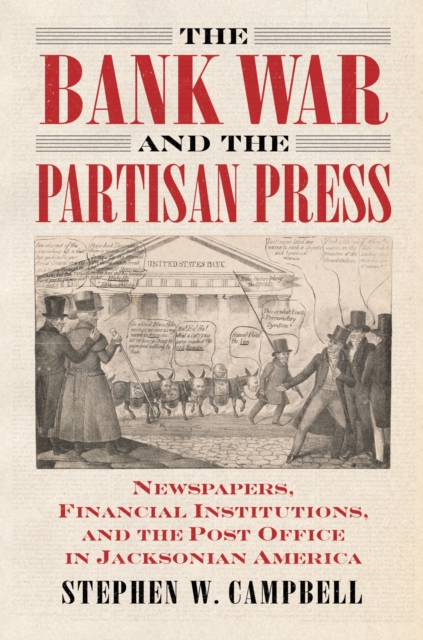President Andrew Jackson's conflict with the Second Bank of the United States was one of the most consequential political struggles in the early nineteenth century. A fight over the bank's reauthorization, the Bank War, provoked fundamental disagreements over the role of money in politics, competing constitutional interpretations, equal opportunity in the face of a state-sanctioned monopoly, and the importance of financial regulation--all of which cemented emerging differences between Jacksonian Democrats and Whigs. As Stephen W. Campbell argues here, both sides in the Bank War engaged interregional communications networks funded by public and private money. The first reappraisal of this political turning point in US history in almost fifty years,
The Bank War and the Partisan Press advances a new interpretation by focusing on the funding and dissemination of the party press.
Drawing on insights from the fields of political history, the history of journalism, and financial history,
The Bank War and the Partisan Press brings to light a revolving cast of newspaper editors, financiers, and postal workers who appropriated the financial resources of preexisting political institutions--and even created new ones--to enrich themselves and further their careers. The bank propagated favorable media and tracked public opinion through its system of branch offices while the Jacksonians did the same by harnessing the patronage networks of the Post Office. Campbell's work contextualizes the Bank War within larger political and economic developments at the national and international levels. Its focus on the newspaper business documents the transition from a seemingly simple question of renewing the bank's charter to a multisided, nationwide sensation that sorted the US public into ideologically polarized political parties. In doing so,
The Bank War and the Partisan Press shows how the conflict played out on the ground level in various states--in riots, duels, raucous public meetings, politically orchestrated bank runs, arson, and assassination attempts. The resulting narrative moves beyond the traditional boxing match between Jackson and bank president Nicholas Biddle, balancing political institutions with individual actors, and business practices with party attitudes.










